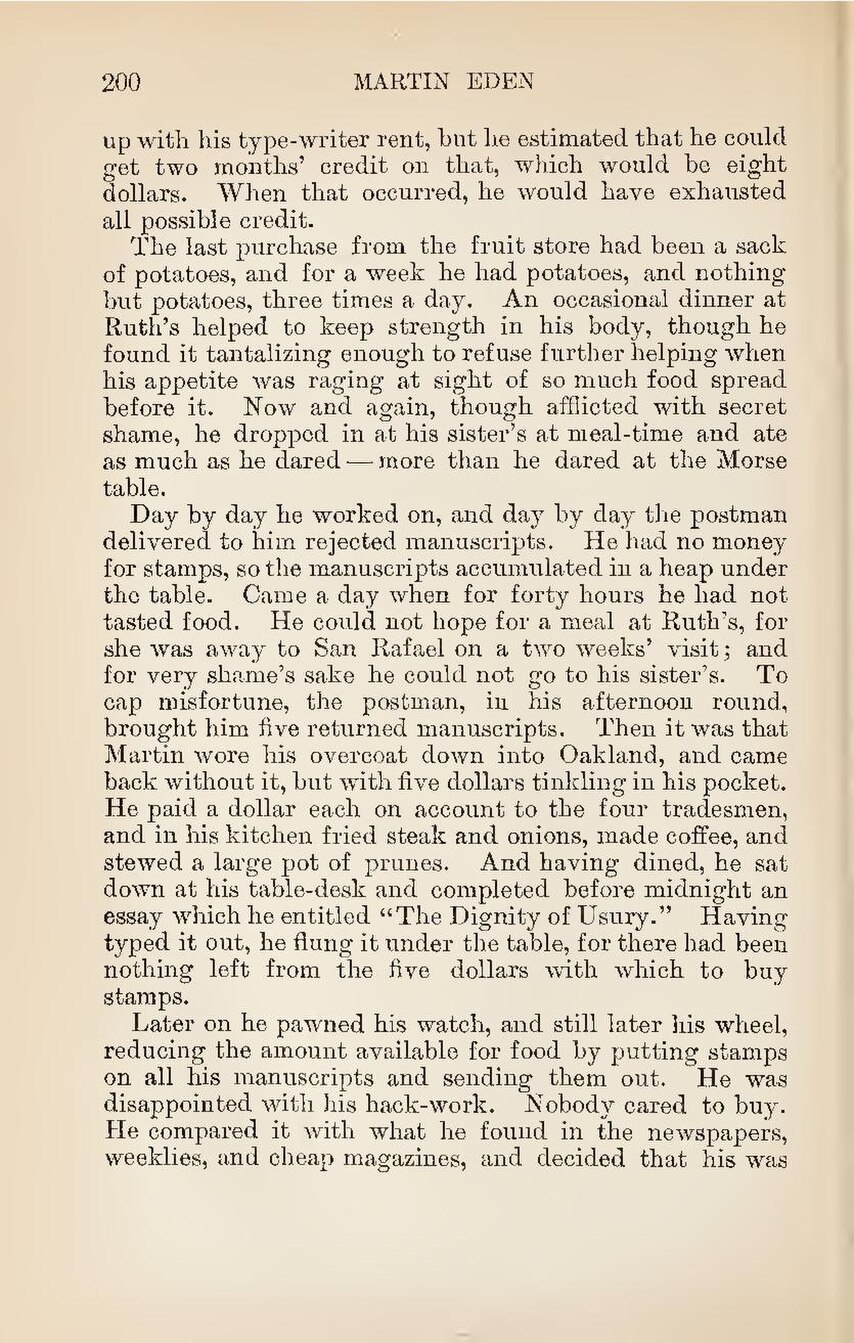up with his type-writer rent, but he estimated that he could get two months' credit on that, which would be eight dollars. When that occurred, he would have exhausted all possible credit.
The last purchase from the fruit store had been a sack of potatoes, and for a week he had potatoes, and nothing but potatoes, three times a day. An occasional dinner at Ruth's helped to keep strength in his body, though he found it tantalizing enough to refuse further helping when his appetite was raging at sight of so much food spread before it. Now and again, though afflicted with secret shame, he dropped in at his sister's at meal-time and ate as much as he dared—more than he dared at the Morse table.
Day by day he worked on, and day by day the postman delivered to him rejected manuscripts. He had no money for stamps, so the manuscripts accumulated in a heap under the table. Came a day when for forty hours he had not tasted food. He could not hope for a meal at Ruth's, for she was away to San Rafael on a two weeks' visit; and for very shame's sake he could not go to his sister's. To cap misfortune, the postman, in his afternoon round, brought him five returned manuscripts. Then it was that Martin wore his overcoat down into Oakland, and came back without it, but with five dollars tinkling in his pocket. He paid a dollar each on account to the four tradesmen, and in his kitchen fried steak and onions, made coffee, and stewed a large pot of prunes. And having dined, he sat down at his table-desk and completed before midnight an essay which he entitled "The Dignity of Usury." Having typed it out, he flung it under the table, for there had been nothing left from the five dollars with which to buy stamps.
Later on he pawned his watch, and still later his wheel, reducing the amount available for food by putting stamps on all his manuscripts and sending them out. He was disappointed with his hack-work. Nobody cared to buy. He compared it with what he found in the newspapers, weeklies, and cheap magazines, and decided that his was
